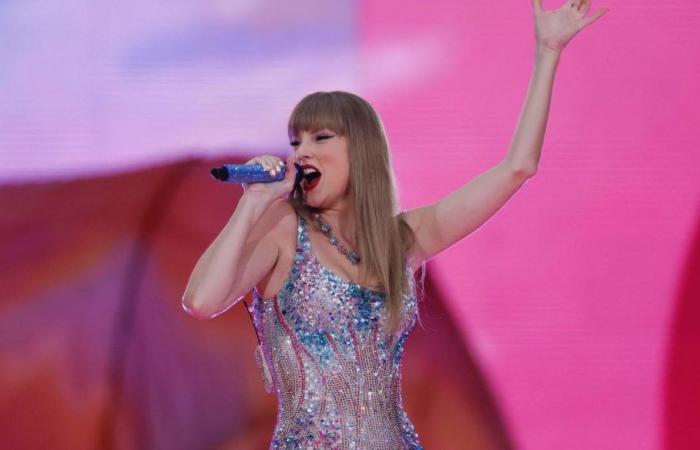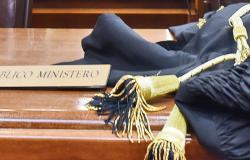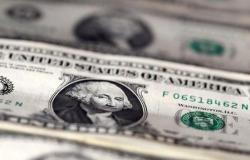The global superstar Taylor Swift is capturing the attention not only of its die-hard fans, but also of economic analysts: it has officially become a macroeconomic phenomenon. His “Eras Tour,” with 152 dates in 20 countries, is breaking record after record. According to the Wall Street Journal, the tour could surpass $2 billion in grosses by the time it closes in London in August 2024, significantly surpassing Elton John’s “Farewell Yellow Brick Road Tour,” which grossed about $939 million.
Philip Lane, chief economist of the European Central Bank, mentioned the singer recently, highlighting how her presence in Europe could intensify the‘service sector inflationespecially in an already hot summer with the Paris Olympics and the Euro 2024 European football championship in Germany.
The tour has already had a huge economic impact in several countries. The concerts attract tens of thousands of fans who spend considerable amounts on restaurants, accommodations and local attractions. Many fans are willing to travel for hours — and even cross national borders — just to not miss a show.
This is why we talk about Swiftinflation: Taylor Swift’s arrival in a city not only ignites the enthusiasm of fans, but It also increases prices. Hotels are booked to capacity, restaurants see a boom in bookings and local commerce booms, all thanks to his enormous influence. This phenomenon is forcing economists and analysts to keep an eye on the pop star’s movements, while Swiftinflation becomes a new economic indicator to monitor.
What is Swiftinflation: The economic impact of Taylor Swift’s world tour
The incredible success of Taylor Swift’s world tour is not only redefining the music industry, but also highlighting the powerful economic impact of her global following. The massive influx of fans manages to stir inflation, demonstrating how a pop star can influence the economy of a country.
Philip Lane, an economist at the ECB, highlighted the significant economic impact of Swift’s tour in Europe. Hundreds of thousands of “Swifties” flood into cities, spending lavishly on flights, hotels, restaurants and souvenirs, contributing substantially to local and national economies.
In Europe, as central banks cut interest rates thanks to a slowdown in inflation, concerns remain that inflationary pressures are not fully under control, especially in service sectors such as hotels and restaurants, where prices continue to exceed expectations.
The demand generated by the tour for hotel rooms and flights across Europe could push up prices, influencing each country’s inflation rate. Bankers and economists are watching even small changes in the data carefully, trying to distinguish between temporary and long-lasting effects. If inflation doesn’t slow as expected, they could delay further rate cuts.
The Impact of Swiftinflation in Europe
Even in Europe, after the United States and Japan, Taylor Swift’s tour is making its mark. Hotel prices in the cities that hosted the concerts have seen an average increase of 44%, with peaks that have almost doubled in cities like Liverpool, Warsaw and Stockholm.
Last month, the inflation rate in Portugal has accelerated, partly due to an increase in hotel prices in Lisbon “following a major cultural event,” according to the country’s statistics office. Taylor Swift performed in Lisbon on May 24th and 25th.
With eight shows at London’s Wembley Stadium, Taylor Swift expects to draw around 700,000 people. Analysts are debating the economic footprint she will leave in the British capital.
As reported by the New York Times, Lucas Krishan, of TD Securities in London, speculated that Swift’s concerts in August could increase services inflation in the UK, especially if one of her shows coincides with the day on which the national statistical agency records price data. If hotel prices follow the pattern seen in Liverpool, services inflation could rise by up to 0.3 percentage points. Higher-than-expected inflation data in August could prompt Bank of England officials to postpone rate cuts until September.
Barclays predicts Swift’s tour could bring nearly £1 billion to the British economybut Moran stressed that these predictions are difficult to verify. When tickets went on sale last summer, Airbnb searches in the host cities increased by an average of 300%, according to the company. The Greater London Authority has estimated that Swift’s London concerts will generate £300 million for the economy.
The tour even surpassed the Olympics in France in terms of economic impact, with concert tickets selling out months in advance and VIP packages reaching record prices of 1,500 euros.
According to a report by BMI, an analytics subsidiary of Fitch Solutions, three of the four countries Taylor Swift visited in May saw hotel prices increase compared to the previous three years. In particular, Portugal, Spain and Sweden saw significant increases in accommodation costs compared to the 2021-2023 average. Only France saw a decrease in accommodation inflation.
Bmi scholars attribute the difference to France’s larger population and its greater accommodation capacity compared to the other countries on the tour, which could dilute the impact of the American pop star’s concerts. The 290,000 participants in the six shows between Paris and Lyon represent only 0.43% of the French population.
Swift’s shows in the Netherlands, Ireland, Austria and Switzerland could increase prices, given that the populations of these countries are all under 20 million.
Barclays estimates that the entire UK tour could add around £1 billion to the UK economy. However, the expected rise in prices due to the influx of fans could push the Bank of England to delay cutting interest rates, currently set at 5.25%, the highest level in 16 years, initially expected in August .
Swiftinflation also lands in Milan
Taylor Swift will also arrive in Milan with her Eras Tour on July 13 and 14, attracting 160,000 people. More than 20% of tickets were purchased by foreign tourists, an effect comparable to the Salone del Mobile.
“Our analysis and data show that hotel prices in Milan are on average 45% higher for the nights of Taylor Swift’s shows in the city in July 2024, compared to the weeks before and after the show,” said Ben Julius , founder of a tour company called Tourist Italy, to Business Insider.
Mind-boggling Numbers: The Taylor Swift Effect on the Global Economy
Taylor Swift is not only a music superstar, but also an economic giant. In the United States, where she has held 53 shows, fans have spent an average $1,300 each. This phenomenon, Swiftinflation, has even been cited by the Philadelphia Federal Reserve to explain the record demand for hotels.
BMI analysts found that concert-goers can spend up to four times the cost of tickets, pushing up local inflation. In Chicago, his Eras tour led to record hotel occupancy of 96.8%.
Swift’s success doesn’t stop there: she entered the billionaire club in 2024, with a net worth of $1.1 billion. The Federal Reserve compared the economic effect of her concerts to that of the Super Bowl, with significant increases in restaurant and hotel spending.
The Eras Tour has generated $4.6 billion in U.S. GDP alone and over $10 million for Swift. Its impact extends beyond borders, with Canadian Prime Minister Justin Trudeau inviting her to perform in Canada, and the Singapore government even offering millions in incentives to bring her to the city-state, a move that has sparked controversy.
Reserve Bank of Australia Governor Michele Bullock admitted to Reuters that the “Taylor Swift inflation” effect influenced spending decisionsbut downplayed the impact on economic policy. Despite this, the tour has surpassed A$1 billion in revenue, with fans spending billions on transport and accommodation.
Michael Johnson, CEO of Accommodation Australia, told the newspaper that Swift’s tour had led to record hotel occupancy rates in Sydney and Melbourne, and restaurants, bars and tourist attractions had also benefited. “People aren’t just coming for one night, they’re staying two or three days and doing other activities,” Johnson told Reuters.
Inflation and Pop Culture: When Stars Drive Up Prices
Who would have thought that entertainment could fuel inflation? About a year ago, 92,000 fans from all over the world invaded Sweden for the sold-out concerts of Beyoncé, creating such strong tourist demand that it drives up prices and increases inflation by 0.2%. This forced the Swedish Central Bank to revise its economic forecasts for April and May.
Even with the ECB’s recent lowering of interest rates, inflation expectations remain high. Especially in service sectors such as hotels and restaurants, costs continue to exceed expectations. The economic excitement around Taylor Swift’s Eras Tour could add a further dose of complexity to monetary policy forecasts, putting central banks’ strategies to the test.






